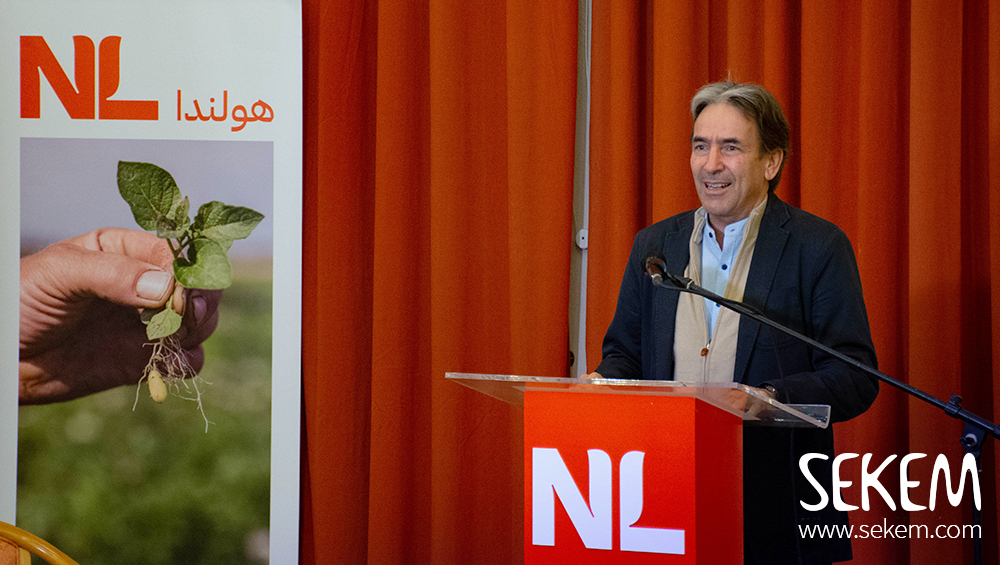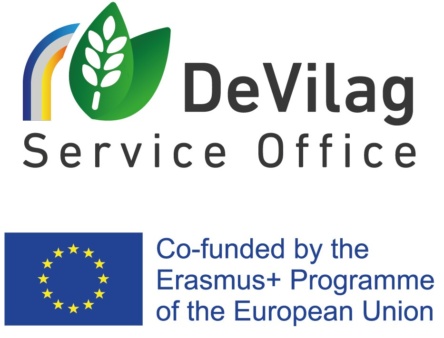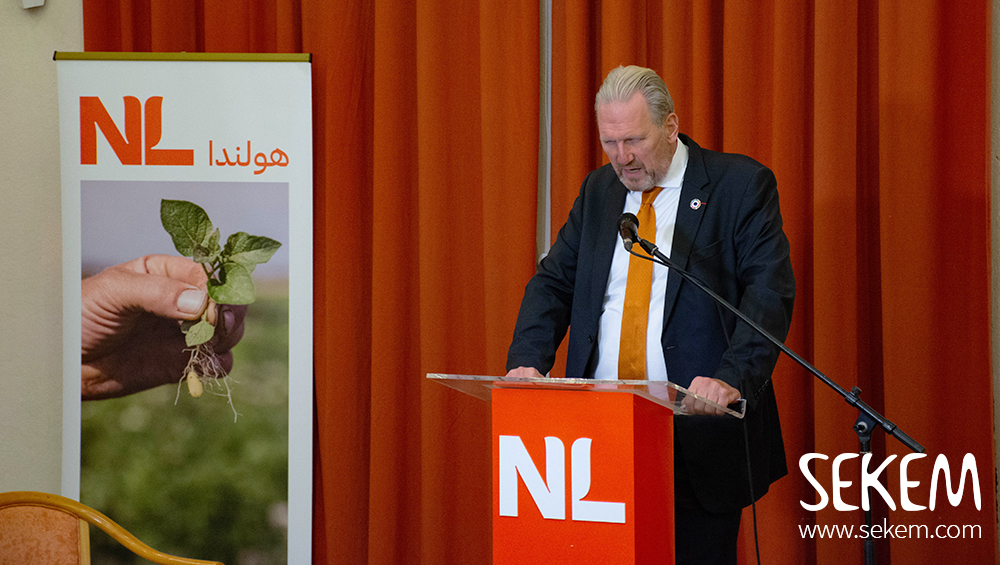On November 22nd, SEKEM, with the logistical support of HU’s DeVilag Service office, hosted a seminar for the Dutch Embassy in Egypt discussing the opportunities for the future of agriculture in degraded saline soils. This was one of the events of NL-Masr Agri-food Network aiming to provide a platform to exchange experiences, raise awareness and foster cooperation between Dutch and Egyptian policymakers, business, the scientific community and civil society. The seminar was under the patronage of and opened by the Dutch Ambassador, Han-Maurits Schaapveld and attended by representatives of Dutch and Egyptian companies and research institutions. Amongst the speakers and panelists were Dr. Hassan ElShaier, fromer director of the Desert Research Centre, Rogier van Opstal from Necterra, Eng. Medhat El Melegy, Director of the Horticultural Export Improvement Association, Melle Leestra, Agricultural counsellor of the Netherlands, Dr. Saber Hendawi from EBDA, and Lotte Demmink from Delphi. In his opening remarks, Ambassador Schaapveld stressed the importance of bringing together Dutch and Egyptian expertise in sustainable agriculture and that the “world is facing a common challenge. The challenge to give a growing population access to quality healthy food.”

DESALT – Solutions for saline soils
DESALT project (Dutch-Egyptian saline agriculture and water management learning and technology) focuses on optimizing cultivation by Egyptian farmers affected by saline soil and water conditions. This is done through various technical interventions, seed selection, and training to improve yield and water use among farmers across Egypt.

The technical efforts consist of investigating the biophysical conditions, crop and water use strategies, and subsequent implementation, management and refining of the DESALT interventions on-farm together with the farmers, while seeking synergies between crops, open land and greenhouses cultivation. The partner farms will also be open to visitors for training and demonstration.
Cultivation using brackish groundwater is an important scenario for Egypt, and it is therefore deemed relevant to further build institutional and sectorial support for more advanced DESALT interventions that allow higher yields with less water.
“We’re happy that HU (Heliopolis University for Sustainable Development) currently puts to practice what they have learned from preceding TMT (Tailor Made Trainin) and the resulting research. It is important that more universities look into new ways and ideas to further improve the agriculture sector,” concludes Helmy Abouleish.
[embedyt] https://www.youtube.com/watch?v=fPJ4o3jiNAQ[/embedyt]

